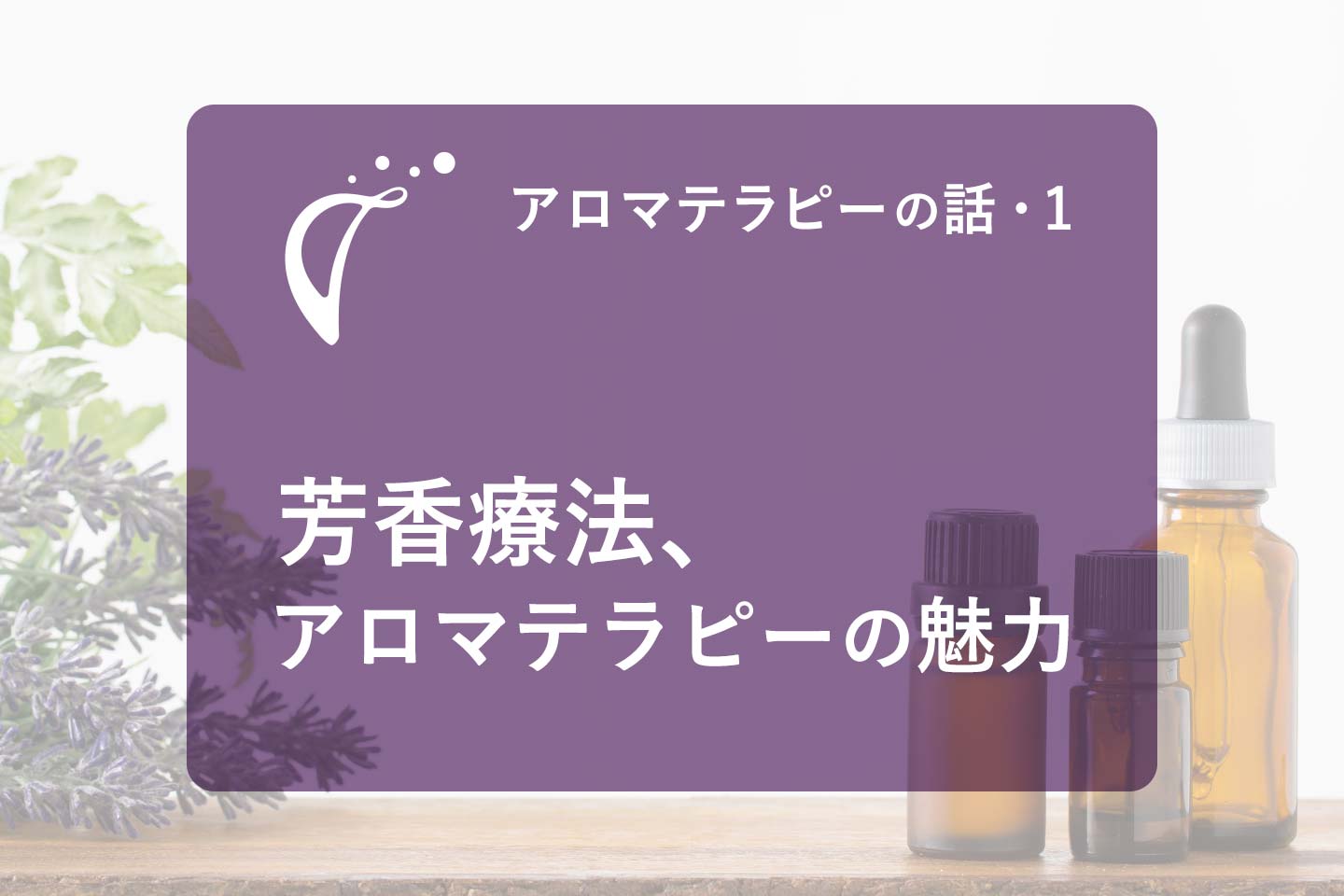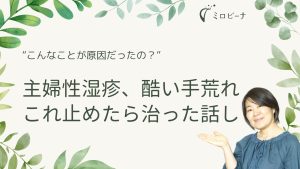Hello! My name is Kigawa, and I work for Bi Natural and Milobina.
I currently run a skin care shop, but I am also certified as an aroma instructor from the Japan Aroma Environment Association, and have also held aroma classes.
I'm 50 years old now, but when I started aromatherapy, it was just starting to become known in Japan, and I was in my late 20s.
Aromatherapy was still rare, but I was attracted to plants and the charm of scent, so I went to school in Jiyugaoka for about two years to study.
Until then, it has to be natural! We have to protect the environment! I didn't have any particular thoughts or feelings about this, and I was living a normal chemical life.
Attending this aroma school and gaining new knowledge about nature, the environment, and the human body was the reason I became interested in modern natural products and began to question useful things.
At the aroma school, I not only learned about care using aromas, but also learned everything necessary to make aromas useful, such as health science, nutrition, chemistry related to aromas, and history.
During this time, I not only learned about the properties of essential oils, but also about various plant oils used in aromatherapy.
This is the starting point for understanding today's natural skin care products.
Starting today, we will talk about things related to aromatherapy, first of all, what is aromatherapy?
Starting from a holistic perspective such as
Lavender essential oil and jojoba oil are plants like this, are native to these places, and are used for these things. I'm going to talk about each topic multiple times.
Plants are essential to our lives. From my experience, I am convinced that plants that have been used to our skin for a long time are more easily absorbed and more effective than chemicals.
First of all, it is called "aromatherapy", but some places call it "aromatherapy". This word refers to therapy using aroma, and was coined by French perfumer and researcher Rene Maurice Gattefosse.
(If you google it, it is a famous person who is also listed extensively on Wikipedia.)
He started seriously researching aromatherapy, and when I heard about it, I realized that the power of plants is amazing, and that aroma essential oils are not just for enjoying the scent. , you can really do something like this! I remember being impressed.
The story is that in 1910, when he suffered a serious burn, he immediately put his hand in a pot containing lavender essential oil, which was said to be good for burns. is.
The pain quickly subsided and the wound healed without any scars or traces.
(It seems that the actual situation was a little different, but there is no doubt that the burn healed thanks to the lavender essential oil.)
Even before that, there were folk remedies using aroma essentials, but witnessing the healing power of essential oils gave me the opportunity to pursue research.
After that, he wrote a book that systematically explains how to use it effectively for health and beauty.
This book was called ``Aromatherapy'' (Japanese translation: Aromatherapy), and it is said that the word aromatherapy was first coined at this time.
That was in 1937, and in fact less than 100 years have passed since the word aromatherapy was coined.
Of course, aromatherapy uses scent essences and essential oils, but I would like to clarify the terminology a little.
In Japan, we often talk about essential oils.
・Aroma oil etc.
・Essential oils etc.
・Essential oil etc.
・Aroma essential oil
・Or oil for short
I think it's easy to get confused.
First of all, essential oil is the Japanese translation of essential oil, so there is no problem as they refer to the same thing.
Next, regarding aroma essential oils, we intentionally add aromas to them, but essential oils have aromas in the first place, so there is no need to add aromas.
Therefore, the most accurate and clear words are
essential oil
Or
Japanese essential oil
It becomes.
Now, when I look at various articles and online shops, I find it difficult to judge when it comes to "aroma oil."
Aroma is a word that refers to ``fragrance'' or ``fragrance,'' but aroma oil originally referred to artificial fragrances used in things like potpourri.
Potpourri existed before aromatherapy became popular, so it was called aroma oil back then.
However, as treatments and products using essential oils have become more common, people with little knowledge of aromas are starting to use aroma oils because they have a closer image of them than essential oils. I think that's why we ended up in the current situation.
Currently, we can only judge based on the context, but the important thing is to fully understand whether aromatherapy has an effect or not.
In the aroma world, "aroma oil" is simply an artificial fragrance essence and has no aromatherapy effect.
Yes, this is important!
Aroma oils used in potpourri and commercially available fragrance products sold as ``scent'' will not have aromatherapy effects if they do not contain 100% essential oils.
Even if you find the artificial scent pleasant, the aromatherapy effect is not occurring in your body.
Aromatherapy is all about the 100% natural aroma components of essential oils that have medicinal properties that affect our hormones, brain chemicals, skin, etc.
For example, when we smell the scent of lavender essential oil, its pharmacological effects cause our brains to secrete a substance called serotonin. It also blocks pain-sensing nerves and has an analgesic effect.
Essential oils have such pharmacological effects.
Artificial fragrance ingredients and essential oil fragrance ingredients are very similar.
Next time, what exactly are essential oils? So, I would like to talk to you.
Thank you for reading to the end today!






